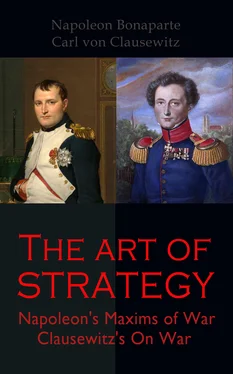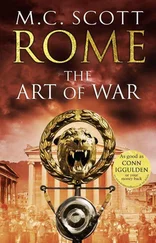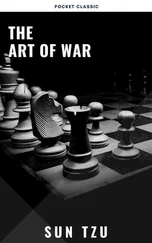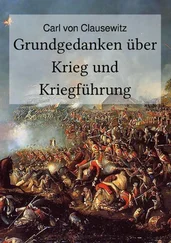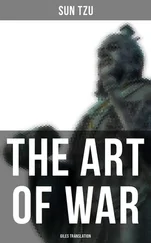Table of Contents
A commandant of artillery should understand well the general principles of each branch of the service, since he is called upon to supply arms and ammunition to the different corps of which it is composed. His correspondence with the commanding officers of artillery at the advanced posts, should put him in possession of all the movements of the army, and the disposition and management of the great park of artillery should depend upon this information.
After having recognized the advantage of intrusting the supply of arms and ammunition for an army to a military body, it appears to me extraordinary that the same regulation does not extend to that of provisions and forage, instead of leaving it in the hands of a separate administration, as is the practice at present.
The civil establishments attached to armies are formed almost always at the commencement of a war, and composed of persons strangers to those laws of discipline which they are but too much inclined to disregard. These men are little esteemed by the military, because they serve only to enrich themselves, without respect to the means. They consider only their private interest in a service whose glory they cannot share, although some portion of its success depends upon their zeal. The disorders and defalcations incident to these establishments would assuredly cease, if they were confided to men who had been employed in the army, and who, in return for their labors, were permitted to partake with their fellow-soldiers the triumph of their success.
Table of Contents
The qualities which distinguish a good general of advanced posts, are, to reconnoitre accurately defiles and fords of every description; to provide guides that may be depended on; to interrogate the curé and postmaster; to establish rapidly a good understanding with the inhabitants; to send out spies; to intercept public and private letters; to translate and analyze their contents; in a word, to be able to answer every question of the general-in-chief, when he arrives with the whole army.
Foraging parties, composed of small detachments, and which were usually intrusted to young officers, served formerly to make good officers of advanced posts; but now the army is supplied with provisions by regular contributions: it is only in a course of partisan warfare that the necessary experience can be acquired to fill these situations with success.
A chief of partisans is, to a certain extent, independent of the army. He receives neither pay nor provisions from it, and rarely succor, and is abandoned during the whole campaign to his own resources.
An officer so circumstanced must unite address with courage, and boldness with discretion, if he wishes to collect plunder without measuring the strength of his little corps with superior forces. Always harassed, always surrounded by dangers, which it is his business to foresee and surmount, a leader of partisans acquires in a short time an experience in the details of war rarely to be obtained by an officer of the line; because the latter is almost always under the guidance of superior authority, which directs the whole of his movements, while the talent and genius of the partisan are developed and sustained by a dependence on his own resources.
Table of Contents
Generals-in-chief must be guided by their own experience, or their genius. Tactics, evolutions, the duties and knowledge of an engineer or artillery officer, may be learned in treatises, but the science of strategy is only to be acquired by experience, and by studying the campaigns of all the great captains.
Gustavus Adolphus, Turenne, and Frederick, as well as Alexander, Hannibal, and Cæsar, have all acted upon the same principles. These have been: to keep their forces united; to leave no weak part unguarded; to seize with rapidity on important points.
Such are the principles which lead to victory, and which, by inspiring terror at the reputation of your arms, will at once maintain fidelity and secure subjection.
“A great captain can only be formed,” says the Archduke Charles, “by long experience and intense study: neither is his own experience enough—for whose life is there sufficiently fruitful of events to render his knowledge universal?” It is, therefore, by augmenting his information from the stock of others, by appreciating justly the discoveries of his predecessors, and by taking for his standard of comparison those great military exploits, in connection with their political results, in which the history of war abounds, that he can alone become a great commander.
Table of Contents
Peruse again and again the campaigns of Alexander, Hannibal, Cæsar, Gustavus Adolphus, Turenne, Eugene, and Frederick. Model yourself upon them. This is the only means of becoming a great captain, and of acquiring the secret of the art of war. Your own genius will be enlightened and improved by this study, and you will learn to reject all maxims foreign to the principles of these great commanders.
It is in order to facilitate this object that I have formed the present collection. It is after reading and meditating upon the history of modern war that I have endeavored to illustrate, by examples, how the maxims of a great captain may be most successfully applied to this study. May the end I have had in view be accomplished!
Table of Contents
Introduction
Preface to the First Edition
Notice
The Introduction of the Author
Brief Memoir of General Clausewitz (by Translator)
Book I. On the Nature of War
Chapter I. What is War?
Chapter II. Ends and Means in War
Chapter III. The Genius for War
Chapter IV. Of Danger in War
Chapter V. Of Bodily Exertion in War
Chapter VI. Information in War
Chapter VII. Friction in War
Chapter VIII. Concluding Remarks, Book I
Book II. On the Theory of War
Chapter I. Branches of the Art of War
Chapter II. On the Theory of War
Chapter III. Art or Science of War
Chapter IV. Methodicism
Chapter V. Criticism
Chapter VI. On Examples
Book III. Of Strategy in General
Chapter I. Strategy
Chapter II. Elements of Strategy
Chapter III. Moral Forces
Chapter IV. The Chief Moral Powers
Chapter V. Military Virtue of an Army
Chapter VI. Boldness
Chapter VII. Perseverance
Chapter VIII. Superiority of Numbers
Chapter IX. The Surprise
Chapter X. Stratagem
Chapter XI. Assembly of Forces in Space
Chapter XII. Assembly of Forces in Time
Chapter XIII. Strategic Reserve
Chapter XIV. Economy of Forces
Chapter XV. Geometrical Element
Chapter XVI. On the Suspension of the Act in War
Chapter XVII. On the Character of Modern War
Chapter XVIII. Tension and Rest
Book IV. The Combat
Chapter I. Introductory
Chapter II. Character of a Modern Battle
Chapter III. The Combat in General
Chapter IV. The Combat in General (continuation)
Chapter V. On the Signification of the Combat
Chapter VI. Duration of Combat
Chapter VII. Decision of the Combat
Chapter VIII. Mutual Understanding as to a Battle
Chapter IX. The Battle(*)
Chapter X. Effects of Victory
Chapter XI. The Use of the Battle
Chapter XII. Strategic Means of Utilising Victory
Chapter XIII. Retreat After a Lost Battle
Chapter XIV. Night Fighting
Book V. Military Forces
Chapter I. General Scheme
Chapter II. Theatre of War, Army, Campaign
Читать дальше
